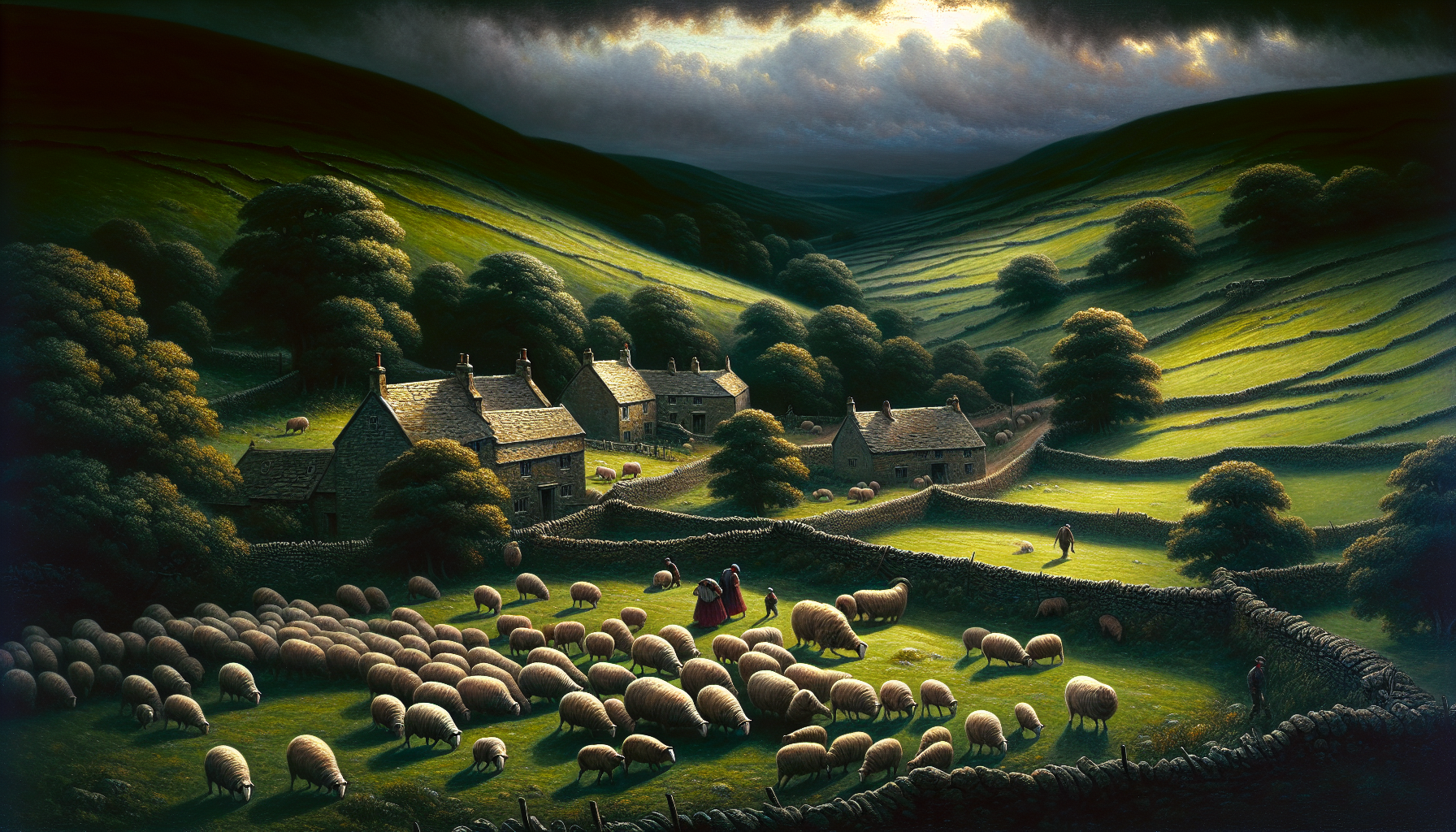Title: When the Hills Have Eyes: Sheep Rustling in Dartmoor and the Quiet Collapse of British Assumptions
Dear readers,
In an age where we track everything—steps on a Fitbit, the temperature of our morning oat milk, even the carbon footprint of an avocado—it’s oddly jarring to realize something as ancient and familiar as livestock could simply vanish without a trace. And yet, that’s exactly what’s happening in Dartmoor National Park, where the mythical green hills of Britain’s rural soul are now the stage for a modern-day crime spree reminiscent of a cowboy novella scribbled in bureaucratic ink.
Yes, you read that right: sheep rustling is back. Only this time, it's not an old-timey legend passed down with cider at the pub. It’s happening right now. In 2025. In Devon. And it’s bleeding farmers dry while the rest of us debate whether reality shows have gone too far.
The Cost of Vanishing Wool
One farmer in Dartmoor reported losing 440 sheep last year—yes, 440. Depending on breed and market value, that’s a personal loss well over £50,000. That isn’t just a line on a spreadsheet or a sobering insurance claim—it’s generational livestock, the lifeblood of a rural livelihood simply gone, like hay in the wind.
Devon and Cornwall Police clocked over 1,100 cases of sheep theft in 2023 alone. But what’s more disturbing than the number is the growing belief that the culprits are not petty criminals lured by impulsive opportunity, but people who know their way around the industry—insiders. The evidence suggests surgical precision, the kind of knowledge you don’t gain from watching Clarkson’s Farm on Prime Video.
From Lush Fields to Black Markets
Where do hundreds of sheep disappear to? Some speculate they’re bound for the black market, injected into illegal meat production operations. There are even whispers of "smokies"—a banned delicacy, often made by illegally processing sheep carcasses with their skin on, violating food safety laws and ethical standards alike.
Let’s pause here.
When sheep rustling conjures imagery of smirking rogues in tweed stealing into the fog with a herd, it’s easy to laugh. But when it becomes a conduit to an underground economy that sidesteps regulation, animal welfare, and public health? The joke curdles fast.
A Wild West in Wellies
Farmers call it a "Wild West." And they’re not wrong. It’s the kind of ironic descriptor we’ve come to love in British reporting—inverting grit with whimsy. But the core truth remains: what’s happening in Dartmoor isn’t quirky. It’s not “local color.” It’s a national failing painted over with pastoral nostalgia.
Even with efforts like drone surveillance and mutterings about livestock-tracking tech, most of the countryside's frontlines still rely on the tools of yesteryear—padlocks, fences, community trust. Trust, it seems, is breaking down faster than the barbed wire.
The Quiet Collapse of the Rural Covenant
This is where the broader narrative takes shape.
We’ve long romanticized the British countryside as a stitched quilt of stability—slow, reliable, noble in its simplicity. But what we're seeing in Dartmoor reveals a deeper erosion. Farmers aren’t just losing sheep—they’re losing faith. Faith in protection. In deterrence. In justice.
One might argue: it’s just sheep. It’s not a political scandal or a cyberattack. It's not TikTok bans or royal family drama. But precisely because it’s not viral, not loud, not funding petitions or headlines—it hurts more. This isn’t a crisis of spectacle. It’s a crisis of silence.
And it's not just Dartmoor. According to NFU Mutual, agriculture’s go-to insurer, livestock theft across the UK cost £2.7 million in 2023, a jump of nearly 9% from the year before. Translate that into lives impacted, and you start seeing empty barns, unpaid bills, and fraying wills.
What We’re Really Losing
This doesn't just chip away at the economics of agriculture—it strikes at identity.
Rural Britain is supposed to be the country’s rooted half, its steady pulse, its tactile heartbeat beneath the digital hum. But even here, where skylarks weep and fog cradles moors like folklore made flesh, the modern condition creeps in—full of unseen transactions, broken enforcement, and the quiet knowing that sometimes, when things are taken from you, no one will bring them back.
Lessons from the Mist
We live in a world that loves its drama neatly packaged. We binge scandals and scroll collapses. But the slow disaster unfolding in Dartmoor doesn’t lend itself to shock value—it offers something more important: reflection.
Reflection on how easily systems break when out of sight. On how rural communities endure more than bad weather and poor WiFi. And on how, despite our smartest tech and loudest coverage, we haven’t learned to shield what matters most without turning it into content.
So next time you drive through the English countryside and see a flock of sheep perched delicately on a hillside, don’t just think bucolic postcard. Think guardians of heritage. Think targets of a quiet war. Think of a farmer watching, hoping, praying that those sheep will still be there tomorrow morning.
Until then, stay aware. Rural theft may not trend, but it talks—quietly, persistently—and the echoes are growing louder.
Yours reflectively,
A Watcher Beneath the Fog

